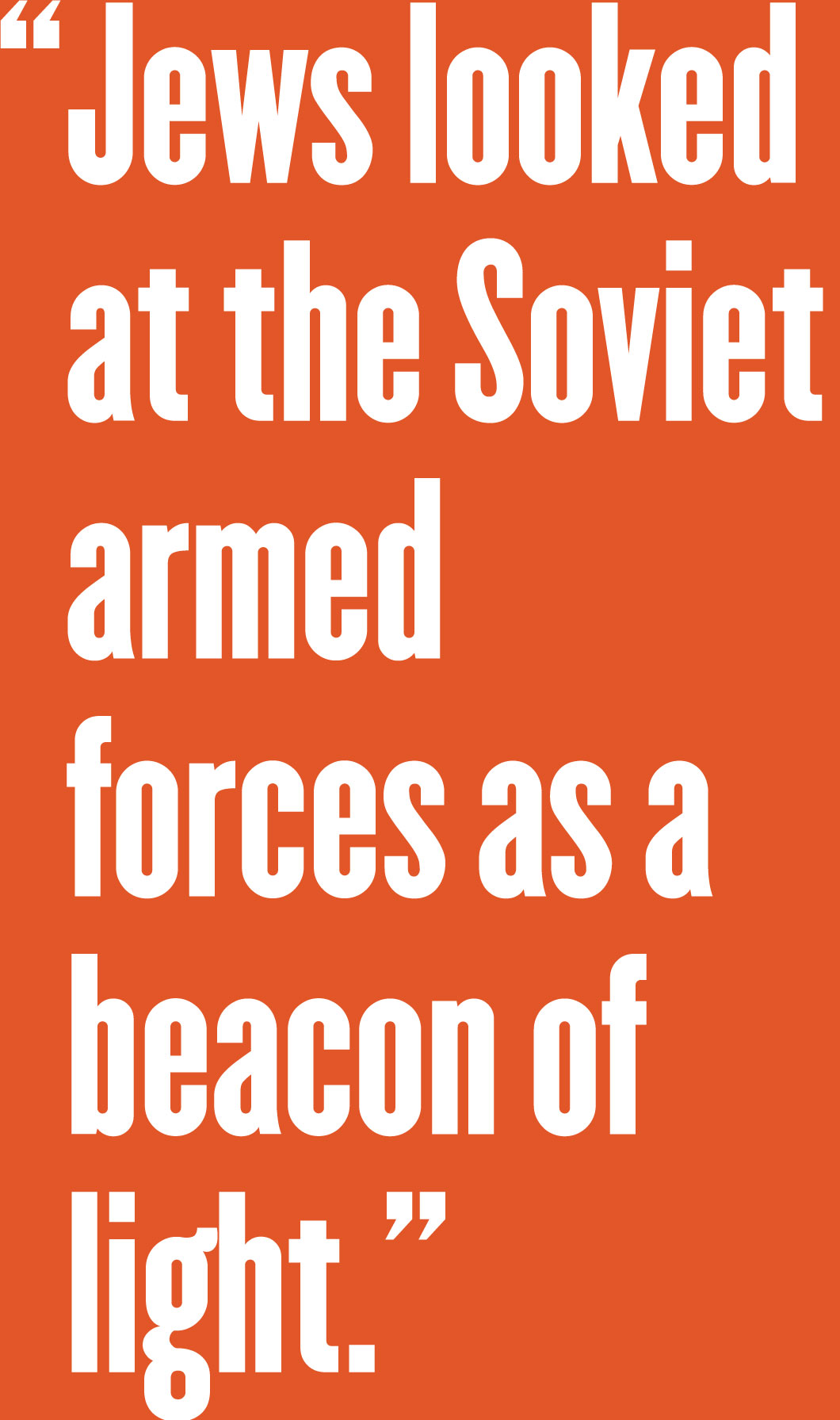
Rudashevski’s diary and the Red Army
From his confinement in the Vilnius ghetto, Yitskhok Rudashevski noted in September 1942: “The Red Army is battling in the suburbs of Stalingrad with great stubbornness and heroism…Everyone’s attention is now turned to Stalingrad. Everyone is waiting, exhausted, for something concrete, for Germany’s decisive defeat. Everyone is waiting for the longed-for peace when the exhausted world will straighten its back.”
Two months later, on November 24th, Rudashevski wrote: “The ghetto reverberates with good news, the ghetto radiates with hope…the German army has suffered a defeat at Stalingrad. Two Soviet armies have converged, encircling the enemy in the Stalingrad-Rostov region. Thousands of Germans killed and taken prisoner.”
And on February 7, 1943: “The people of the ghetto are jubilant. The Germans have admitted that Stalingrad has fallen. Over 300 thousand Germans killed. The liberation is coming, I feel in my blood how close it is.”
Yitskhok Rudashevski, who was murdered in 1943, would not live to see the end of the war. But his diary expressed an enduring insight: Nazism did not leave the world stage on its own, it had to be fought. And it was the Soviet Red Army that led this fight.
Throughout Eastern Europe, Jews looked at the Soviet armed forces as a beacon of light. Knowledge of the Red Army’s triumph at Stalingrad inspired Jews slated for extinction to rise up in revolt. In April 1943, armed young militants in the Warsaw ghetto confronted SS troops that had entered the ghetto to deport residents to death camps. Unable to withstand the Germans on military terms, the resisters sought symbolic meaning as freedom fighters. In their final message to the outside world, they referred to their uprising as the “Battle of Ghettograd 1943.” The name “Ghettograd,” they explained, was to evoke both Stalingrad’s heroic example and the resolve of the Jewish fighters to take revenge on fascism as the “enemy of mankind.”
Politically left-leaning like the insurgents in the Warsaw ghetto, Rudashevski shared their ethos of militant action, even when facing tremendous odds. As early as in 1941, he and others in the ghetto knew that the Nazis had begun the systematic mass murder of the Jews from Vilnius in the nearby Ponar forest. And yet he refused to give in to his fate. Ponar, he wrote, connoted a “passive death.” “[Ponar] contains the tragedy of our helplessness. No! We will not go to Ponar.”
The news from the Eastern Front – including the Red Army’s December 1941 counteroffensive near Moscow, the Soviet victory at Stalingrad in February 1943, and the retaking of Rostov – not only sustained Yitskhok, it also laid the emotional groundwork for the Red Army’s later liberation of the death camps of Majdanek, Treblinka, and Auschwitz. The Soviet contribution to the termination of the Nazi’s plan for mass murder of Europe’s Jews has a powerful – and historically justified – presence in Rudashevski’s diary.
The diary also denounced the lie that the ghettos were fully cut off from the outside world. Rudashevski describes in fascinating detail the radio messages, leaflets, and oral communications that kept pouring into the ghetto. When Nazi propaganda minister Joseph Goebbels gave his “total war” speech in the wake of Germany’s defeat at Stalingrad, Rudashevski reported the speech on the very same day. The actions of many young activist Jews in the ghetto who are mentioned in Rudashevski’s diary, himself included, were integral in the effort to promote a joint fight against fascism.
Jochen Hellbeck, Ph.D., is Distinguished Professor of History at Rutgers University – New Brunswick. His research over the past two decades has centered on individual life stories and the shaping of the self in modern Europe, with a primary focus on the Soviet Union.